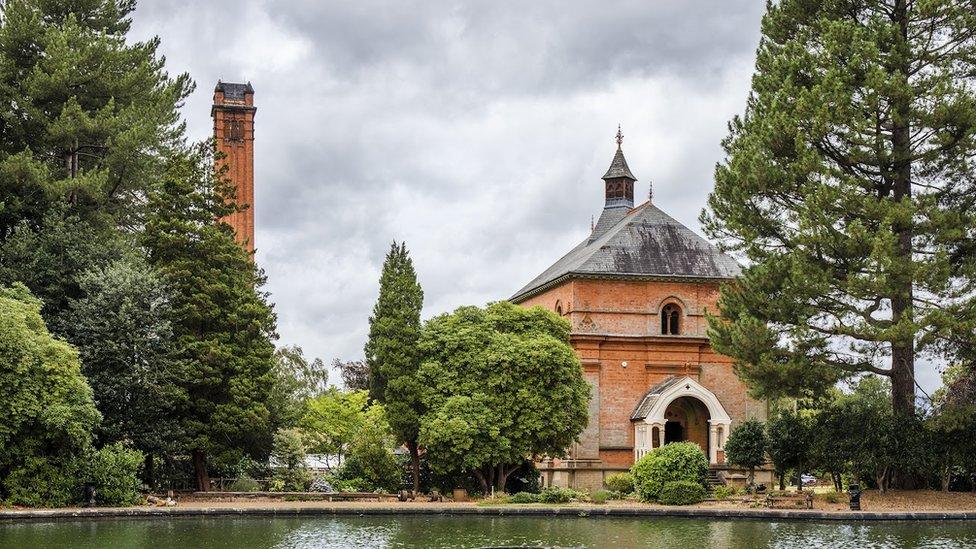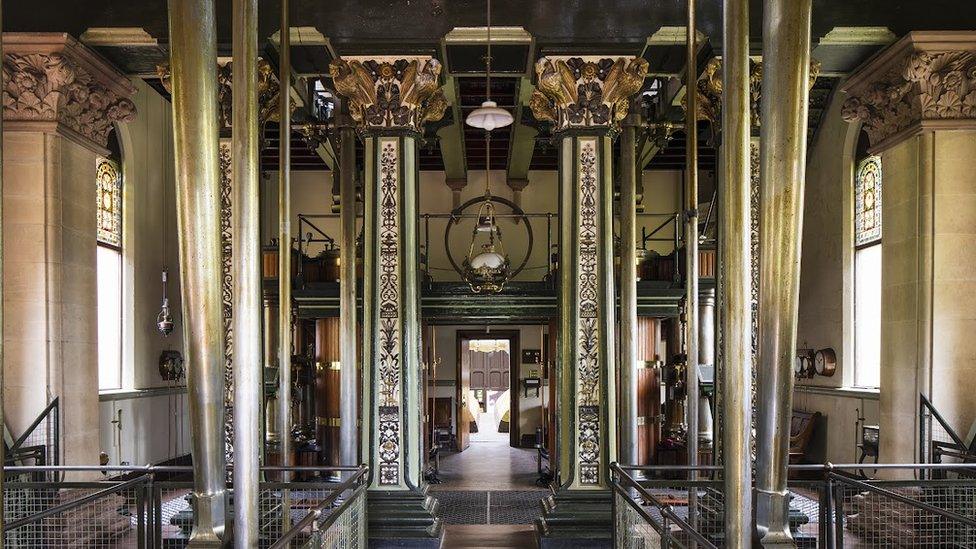Historical Papplewick Pumping Station gets £518,000
- Published

Specialist repair work is needed on parts of Papplewick Pumping Station
A historical pumping station, regarded as the most complete of its kind in the country, has been awarded £518,000.
Papplewick Pumping Station, in Nottinghamshire, was one of more than 70 cultural organisations across the country to receive funding from Arts Council England.
Staff at the station said the money would allow them to carry out repairs.
The attraction was added to Historic England's Heritage at Risk Register in November.
The money will come from the Arts Council England's Museum Estate and Development Fund (MEND) which the pumping station applied to in September.

Arts Council funding will help pay for repairs to the pumping station
The application requested financial support to repair and stabilise the 120ft (36m) tall chimney, the engine house's ornate wooden porch and the site's boundary wall.
The total work is projected to cost £580,000, with Severn Trent pledging to contribute a further £58,840.
The remaining funds will be matched by the museum.

Papplewick Pumping Station
The station is regarded by English Heritage as the most complete Victorian fresh water pumping station in the country, retaining all its original features, machinery and grounds.
It was constructed between 1882-1885, to help supply clean fresh water to people in Nottingham.
It was in continuous operation until 1969 and then opened as a museum in 1975.

Ashley Smart, museum director, said: "We are delighted to have been awarded the funding from Arts Council England.
"This money, along with the generous contribution from Severn Trent Water, will enable us to carry out essential repair works and safeguard the future of the site for many years to come."
Laura Ward, project development officer at Severn Trent, said: "Our heritage assets are hugely important to us, and we will continue to preserve them for future generations."
The work is expected to start in February 2024.

Follow BBC East Midlands on Facebook, external, on Twitter, external, or on Instagram, external. Send your story ideas to eastmidsnews@bbc.co.uk, external.
Related topics
- Published10 November 2022
